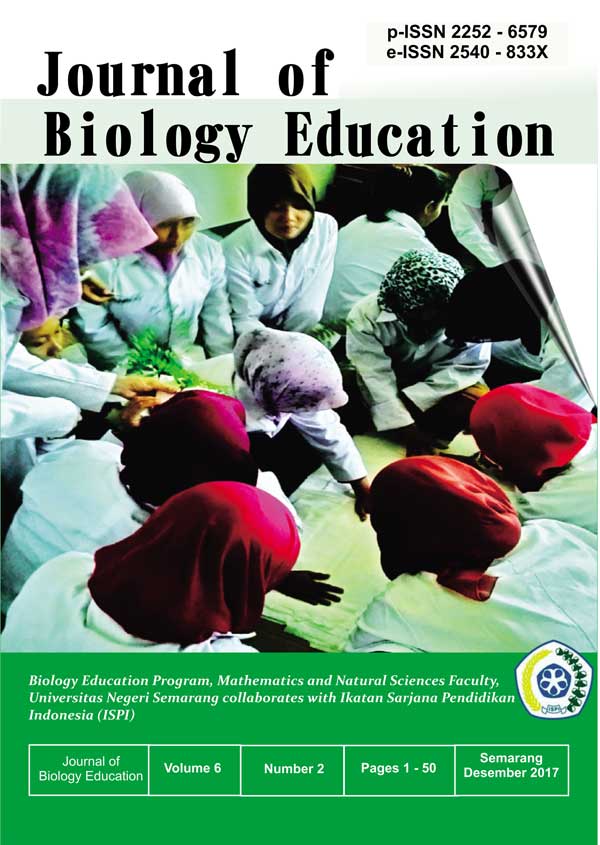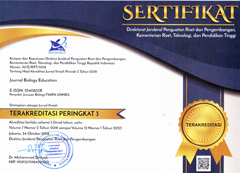Applying Auditory Intellectually Repetition (Air) Model in Cell Material for Student Result
Abstract
The purpose of this study to describe of applying Auditory Intellectually Repetition (AIR) model in cell
material for students result. This study used Quasy Experimental research by Non-Equivalent Control
Group design. Sample is determined by convinience sampling, that is class XI MIA 3(control class) and XI
MIA 4 (experimental class). The result of this research show that learning using AIR in experimental class is
higher than with control class. Analysis of pretest and posttest examine t of tcount 7,426>ttable 1,988 with
significant level 0,05, so it can difference of increase study result in both class. Examine N-Gain
experimental class 84% in high category, and control class 41% in middle category. Examine t average NGain
tcount 4,80>ttable 1,988. Analysis student activities in experimental class is higher than control class
which has percentage of very active and active criterias for experimental class 93.18% and 78.57% for control
class. Analysis of psychomotoric study result in experimental class is 14% in excellent category, 84% in good
category, whereas control class gets persentage 5% in excellent category and 71% in good category. Very good
level of implementation AIR model with in average 86%. Teachers and students also respond very well to
AIR. The conclusion of this study results was apply AIR model in cell material positive effect for student
result.
The copyright of the article once it is accepted for publication shall be assigned to the journal as the publisher. The intended copyright includes the right to publish the article in various forms (including reprints). The journal maintains the publishing rights to the published articles.
This work is licensed under a Creative Commons Attribution 4.0 International License.








